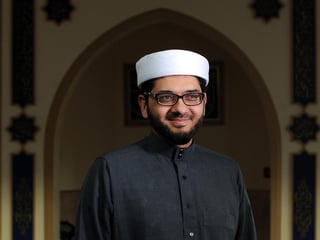"Lockdown should not ruin Ramadan" say Muslim leaders who are using new technology to observe a historic ritual
and live on Freeview channel 276
The month of Ramadan is one of the busiest in the Muslim calendar and can see thousands of people gathering in mosques at the city at any one time to observe a tradition that is thought to have originated in the 14th century.
But with mosques closed due to the coronavirus outbreak, the acts of prayer and fasting - core values of Ramadan - cannot be carried out in the usual way.
Advertisement
Hide AdAdvertisement
Hide AdHowever, leaders at mosques across the city are looking at other ways to keep in touch with their communities, observe the rituals - and the social distancing guidelines set out by the government.
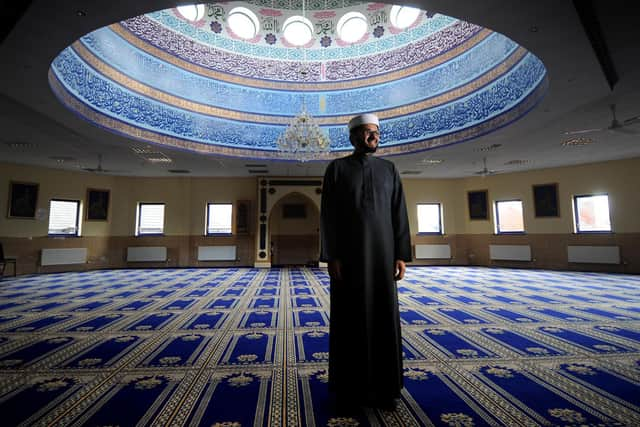

Qari Asim is the Imam at the Makkah Mosque, near Hyde Park, and said his role was to encourage the Muslim community to look at the positive aspects of Ramadan during lockdown.
The early days of Islam did not see hundreds of people attending Iftars (the evening meal where Muslims end their daily Ramadan fast at sunset) or daily prayers as there wasn't the physical means to gather in the same place. The lockdown and extra time at home is also a means of reinforcing the meaning of Ramadan, added Mr Asim.
He said: "Ramadan is about retreating from the material aspects of life and turning to God with full devotion. In a way, this isolation and confinement in our houses is that spacial solitude. My message is, it is not cancelled and lockdown should not ruin Ramadan."
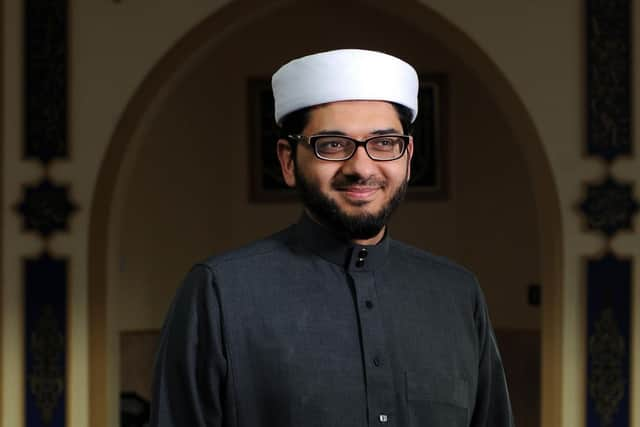

Advertisement
Hide AdAdvertisement
Hide AdAt the Makkah Mosque, there will be a daily video, whether on Facebook or YouTube and Iftar will be done online so worshippers can break the fast together - albeit virtually. For the older members of the Makkah Mosque, who may not be online, they can still listen to the prayers and services via the mosque radio transmitter system if it was already installed in their homes.
It is hoped that more people in the community can also be reached because interaction is online, and the money households would have spent on organising grand Iftars is being encouraged to be put to better use such as foodbanks or by buying food for the vulnerable, NHS or keyworkers. "One of the objectives of Ramadan is to enhance empathy and this is a way to do that", added Mr Asim.
Crash course
From being a face to face mosque with thousands attending, Leeds Grand Mosque has had to embrace technology at a rapid rate as it is now the only means of communication with a congregation that can sometimes be as many at 3,000.
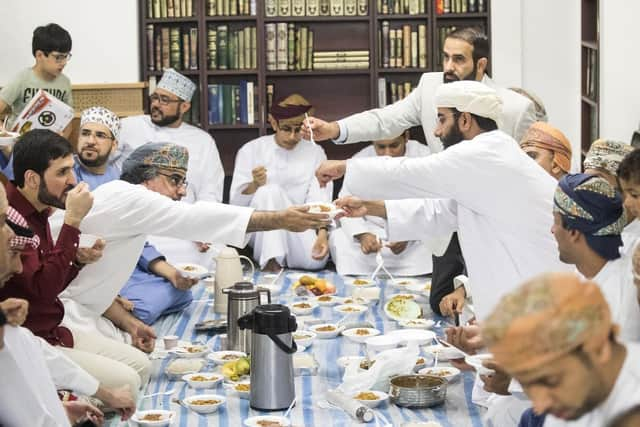

The website and facebook page are being utilised more than ever to get information, events, prayers and messages across and, as worshipppers and their families embark upon the month of Ramadan, they are also learning new ways to get together.
Advertisement
Hide AdAdvertisement
Hide AdDr Ihab Ibrahim is the mosque chairman and he said the usual practice of meeting for prayers and Iftar would attract as many as 700 people three times a week and EID celebrations, which are also potentially in doubt, would see between 2,000 and 3,000 attending.
He told the Yorkshire Evening Post: "One of the things about Ramadan is the social side and that aspect is not happening anymore. We were an active mosque and did a lot of things."
In recent weeks the mosque has started a "Love in a Box" project for the vulnerable or isolating members of the community - Muslim and non Muslim - where a volunteer will keep in touch with that person by phone call or email or do shopping and deliver it to the house.
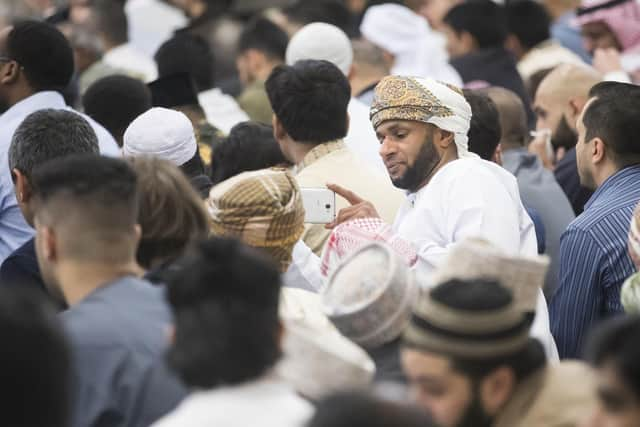

There are virtual get togethers being planned for Iftars both by religious organisations and individual house-holds.
Advertisement
Hide AdAdvertisement
Hide AdDr Ibrahim added: "We have an active facebook page, we have more than 8,500 subscribers, and a lot of events go on there. Every now and then there might be a live event but it was not all of them. In this situation it has forced us to go more online and be more active with technology. It was not easy to start with but we learnt as we went along.
"We are hearing of virtual initiatives that are run by organisations and live Iftars and breaking the fast and having that vibe of being together. I think it is happening here. Families are meeting a lot more online through facebook, Zoom or Skype for Iftar so they can feel that moment and break the fast together. That is our only platform now."
Ramadan factfile
Ramadan is the ninth month of the Islamic calendar observed by Muslims worldwide as a month of fasting, prayer, reflection and community.
It is regarded as one of the Five Pillars of Islam and lasts 29 to 30 days.
Advertisement
Hide AdAdvertisement
Hide AdThe common practice is to fast from dawn to sunset and Ramadan is a time of spiritual reflection, self-improvement, and heightened devotion and worship. Muslims are expected to put more effort into following the teachings of Islam.
A message from the Editor:
Thank you for reading this story on our website. These are challenging times but the team at the Yorkshire Evening Post need your support more than ever in the weeks ahead.
While I have your attention, I also have an important request to make of you. In order for us to continue to provide high quality and trusted local news on this free-to-read site, I am asking you - wherever possible and providing it is safe for you to do so - to also please purchase a copy of our newspaper.
Inevitably falling advertising revenues will start to have an impact on local newspapers and the way we continue to work during this period of uncertainty. So the support of our readers has never been more important as we try to make sure that we keep you connected with the city you live in during this time. But being your eyes and ears comes at a price. We need your support more than ever to buy our newspapers during this crisis.
Advertisement
Hide AdAdvertisement
Hide AdOur team of trusted reporters are working incredibly hard behind the scenes - from kitchen tables and spare bedrooms - to look at how we can do this and your continued support to the YEP will help to protect its viability in the days and weeks ahead.
For more details on our subscription offers please visit www.localsubsplus.co.uk/YEP, email [email protected] or call us on 0330 4033004.
Thank you
Laura Collins
Editor
